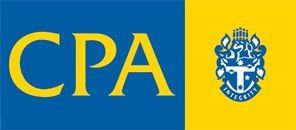Most banks do NOT provide loans WITHOUT SECURITY - why should you?
When directors advance monies to their company, they don’t usually think about what will happen to those funds in the event of the company being wound up. The loan funds will usually ‘sit’ on the company’s balance sheet as a liability and in some cases, the amount is never fully paid back to the director.
In situations where the company is solvent and operating from year to year without any major problems with insolvency, there is no problem with this.
However, if the company comes into hard times and is unable to pay its debts as and when they fall due and is eventually wound up as a result of being insolvent, the loans from the director will be treated as an unsecured debt along with all other trade creditors who have not been granted security by the company, (assuming that the director loan was not secured).
In wind up situations where the company has acquired assets and has obtained equity in these assets to the extent that they are either partially or fully unencumbered, any recovery from the sale of the assets is distributed according to the statutory requirements as set out in the Corporations Act 2001. After the costs of winding up are allocated to a liquidator and / or the petitioning creditors, employees are the first of the company’s creditors to be paid and unsecured creditors are the last class of creditor to be paid.
There is however, one class of creditors who remain at the head of the list and are guaranteed to be paid fully before unsecured creditors receive anything. That of course is the Secured Creditors.
Banks are always assumed to have security as they will not usually advance significant funds to a company without that security.
So why wouldn’t directors secure their own advances to the company just like the banks do?
I have come across many situations where the director or related parties have advanced monies to their companies and in most cases these loans are not secured. In the stressful times that come with a company’s financial difficulties, securing the monies advanced to the company is never in the forefront of the minds of those trying keep their company afloat.
The cost of securing a loan by a director to the company will pale into insignificance if and when the company is ever wound up due to its insolvency, as that security may enable the director to receive 100 cents in the dollar return or a better return than ordinary unsecured creditors.
Circumstances will of course dictate the actual position of each class of creditor, but the Australian law allows secured creditors to have superior ranking and priority to normal unsecured creditors.
Accordingly, directors who lend their own hard earned dollars should seriously think about obtaining security so that they receive a lawful priority over the general class of unsecured creditors.
Security can be obtained against land owned by the company through a mortgage against the registered title for the property.
Security can also be obtained over assets of the company apart from land via a registration on the Personal Property Securities Register (PPSR).
If directors have loaned monies in the past and have not obtained security from the company, it is still possible to have a security interest registered on the PPSR. However, there are a number of provisions of the Corporations Law which come into play with the late registration of a security interest on the PPSR.
Some interests covered by the Personal Property and Securities Act 2009 that are not registered on the PPSR within a certain time will vest in the company that is being wound up or in external administration. So it is important to seek your own legal advice to ensure a late registration will still provide protection to the lender.
If directors are seeking to secure their loans or advances to their company in any circumstances, they should seek the appropriate legal advice.

If your company receives a Creditors Statutory Demand (CSD) and there is no dispute as to the amount owed by your company, you only have 21 days to pay the debt so as to avoid the risk of being compulsorily wound up by the creditor with no further input from you. The creditor will appoint their own liquidator to finalise the affairs of your company. If the debt cannot be paid, a viable alternative is to consider an external administration with the appointment of your choice of Liquidator or Voluntary Administrator. If yours or your client’s company is in this situation, please give us a call so that we can provide expert opinion on what the best option might be. In order to make sure you receive everything that is sent to your company's registered office, make sure you update the ASIC database if you move office or change accountants. If you don't change your company's registered office address, this cannot be used as an excuse to avoid the implications of a Creditors Statutory Demand expiring without your knowledge. It is a requirement for all Creditors Statutory Demands to be sent to the registered office of the company so make sure you keep yours up to date.

Registered Liquidators are experienced accountants, licenced and regulated by the Australian Securities and Investments Commission (ASIC). They are appointed to take over the running of insolvent or failed companies and oversee the final period before all affairs are finalised and the trading body is dissolved. Registered Liquidators must be appointed in the event of a Creditors Voluntary Liquidation to resolve any debts accrued by the company in the most efficient way possible. A Creditors Voluntary Liquidation (CVL) is the most common liquidation appointment type. In the event of a company entering insolvent external administration through CVL, it is the task of a Registered Liquidator to manage the finances and affairs of the body in a fiduciary capacity. After an Extraordinary General Meeting between the shareholders of a company, a Special Resolution will be passed which symbolises the instigation of the process by which the company will be wound up: liquidation. The directors, creditors and shareholders then step away from the organisation which has entered liquidation and their responsibilities are passed to a Registered Liquidator. This professional winds up all ongoing affairs which can include the collection of any outstanding debts and the disposal of company-owned assets. A Registered Liquidator must provide a document titled Consent to Act as Liquidator before they are appointed. Throughout all liquidations, the Registered Liquidator must file relevant documents with ASIC as well as providing ASIC with their yearly return. This enables the Commission to ensure only the highest quality of Registered Liquidators are operating and providing services throughout Australia. ASIC keeps a Register of Liquidators under the Corporations Act 2001 upon which every person is provided with a Registered Liquidator Number. In order to be registered, the person must demonstrate their relevant qualifications, experience, abilities and knowledge. Each registration is valid for 3 years, after which the Liquidator must reapply to maintain a valid license. All Registered Liquidators hold an accountancy degree as well as valid membership to the Institute of Chartered Accountants and/or CPA Australia. In the event of an organisation becoming insolvent, the appointment of a qualified, experienced and professional Registered Liquidator will ensure the subsequent process of winding up the company is completed correctly and responsibly. A Registered Liquidator is capable of completing this complex task efficiently and with minimal unnecessary stress to the directors and shareholders. For more information, contact Menzies Advisory Liquidators & Receivers where our Principal is a Registered Liquidator, Official Liquidator and has been a Certified Practicing Accountant for over 35 years.

Sometimes shareholders and company directors decide to cease trading despite the continued viability of the company. When this decision has been made, it is best to bring in external administrators to complete the Members’ Voluntary Liquidation process. By hiring qualified and experienced professionals, the process of finalising all company affairs, deregistering your company and the distribution of remaining funds amongst shareholders will be completed in a timely, commercially beneficial and legally correct fashion. While the terms ‘administration’ and ‘liquidation’ are most often associated with insolvent companies, it is also possible for the affairs of solvent companies to be wound up in this matter. There are various reasons why a business may choose to wind up rather than be sold as a going concern or continue trading. These include: Redistributing capital tax free Restructuring a company Business is no longer trading/required Bringing a company to its legal end – once deregistered it cannot be reinstated When a reason is decided upon, the majority of directors are obliged to sign a Declaration of Solvency form, stating the company is in a position to pay all existing debts within the upcoming year. Dormant companies may also be deregistered through this external administration process. Winding up a solvent company through external administration is easier and simpler than an insolvent company because, by definition, the company is in a position to repay any and all outstanding debts. 75% of company members are required to vote in favour of bringing in an external administrator at a meeting in regards to the Special Resolution. Once a company has entered the Members’ Voluntary Liquidation, the company can begin to be wound up by an external administrator. The appointed administrator will meet with any creditors and take care of any legal paperwork with the court, government and ATO. Once a company has been wound up, the remaining value of the assets can be distributed among shareholders. At this point the company will be legally deregistered. The external administrator is, by definition, independent and impartial. Their sole task is to preserve the company’s assets, comply with all legal obligations and return all funds to creditors and/or shareholders. Therefore, the external administrator cannot be someone with a conflict of interest or some form of duty within the company itself. Impartiality ensures the correct protocols are followed and the liquidation is completed in compliance with all laws. If you are considering placing your solvent company into voluntary external administration, contact Menzies Advisors today and find out more about how our expert liquidators and administrators can help wind up your company as quickly and commercially successfully as possible.

Some companies become insolvent due to poor business plans, a decline in market demand or bad management. Other companies may find themselves in legal difficulties which consume vital cash flow and lead to a company being unable to pay their debts and subsequently being forced into external administration. If your company finds itself embroiled in legal troubles, it is important to conclude proceedings as soon as possible to free up your cash. Money tied up in legal expenses is unable to support your business and can lead to delayed payment to creditors, disgruntled suppliers and even the appearance of a director penalty notice in the event of debts remaining outstanding against the Australian Taxation Office (ATO). Menzies Advisory offers business advisory services in the resolution of matters placing financial strain on a company and returning the organisation to solvency. There are a number of legal problems which can affect businesses, of which we will provide a brief overview here. If your business is experiencing any of these, contact a business advisory service immediately. Former employees who were let go without final termination forms can cause serious problems if they so desire. Harassment or discrimination cases should be taken seriously by a business but wherever possible resolved in-house. Regular training sessions, competent legal departments and human resource services mitigates the chances of these cases being taken to court or even happening in the first place. Patent or copyright issues often impact cutting-edge industries such as technology. Thorough research and diligent development teams should be employed to reduce the risk of violating existing patent or copyright material. Finally, dissatisfied customers can file class action lawsuits which eat up valuable business time and money. Complex legal proceedings are expensive which is how they can lead to external administration. They can direct cash flow away from the business and lead to a company being unable to pay their outstanding debts including the PAYG withholding tax or superannuation guarantee charges. In these cases, a company will become insolvent and will be forced to enter external administration, pursued by the ATO. A Director Penalty Notice will be issued holding the director personally accountable. Due to the obvious cause of insolvency stemming from legal trouble, it is often possible to resolve the issue and deliver a corporate turnaround which returns the company quickly to profitable territory. However, it is crucial to come to a swift legal conclusion to enable cash to become available again to resume trading. Particularly when a Director Penalty Notice has been delivered and the director themselves may be liable, a business advisory service should be retained to resolve the issue as quickly as possible. When extensive legal proceedings drain a business financially, it will become insolvent and be placed in external administration. However, often the legal dispute continues and still requires money. In addition to the costs of the administration, therefore, the company will still be required to pay legal fees for the ongoing case. Lawyers for businesses are aware of the dangers of becoming entangled with complex legal problems and will seek to avoid this at all costs. If your legal team have expressed concerned about your company’s involvement in a dispute, contact Menzies Advisory today. We offer holistic business advisory services for companies throughout Australia and attempt to give second chances to the companies whom we believe can return to profitability through our services.

The Australian Tax Office (ATO) is able to send a Director Penalty Notice to a company director which makes the director personally liable for two company tax debt types. Company directors can become liable for Pay As You Go tax (PAYG) and Superannuation Guarantee Charges (SGC) through a Director Penalty Notice. This article offers directors a comprehensive overview of what circumstances lead to a Director Penalty Notice and what to do when one is issued. Australian laws tightened in 2012, making it easier for a director to become personally liable for company tax debts. This was intended to change the approach company directors took towards tax debts and encourage responsible actions. The scope of the Director Penalty Laws was widened, as was the personal liability of directors. Legal action under a Director Penalty Notice cannot be taken against your company if you keep your Business Activity Statement (BAS) returns up to date and lodge them on time. Failure to do this, however, may result in the ATO issuing a Director Penalty Notice. Director Penalty Notices can take two forms. A ‘traditional’ Director Penalty Notice provides the director with 21 days in which they can take action to avoid the forthcoming personal liability. A ‘lockdown’ Director Penalty Notice, however, automatically makes the director personally liable for any PAYG or SGC in the event of company returns not being lodged on time. Once a ‘lockdown’ Director Penalty Notice has been served, the director cannot avoid the subsequent liability. In the event of a traditional or 21-day Director Penalty Notice, the director has four options: Pay the company debt Put the company into Liquidation Put the company into Voluntary Administration Create a payment arrangement with the ATO As soon as a director receives a traditional or 21-day Director Penalty Notice, they should contact an advisory body to discuss their best options moving forward. Since June 2012, a lockdown Director Penalty Notice now covers a wider remit within which a director can assume personal liability. This includes: The Superannuation payable to employees (under the Superannuation Guarantee law) Directors becoming automatically personally liable when PAYG and SGC debts go unpaid and/or unreported for three months Restricted access to PAYG and withholding credits Backdating personal liability on behalf of the director for PAYG liabilities when they go unpaid and/or unreported for three months beyond their due date. The ATO must estimate the amount of tax owed by a company in the absence of lodged returns before issuing the Director Penalty Notice. A newly appointed company director is not personally liable for company debt until 30 days has passed. A director who has suffered from an illness which prevented their participation in company management may defend themselves against the notice, as too can a director who can prove they took all reasonable steps intended to ensure the company’s compliance with taxation obligations. You cannot ignore a Director Penalty Notice and should it go to the wrong address in the event of the director moving house but failing to update the ATO, you are still liable. If you have received a Director Penalty Notice, either traditional or lockdown, contact Menzies Advisory immediately for comprehensive, confidential advice on how to proceed.

Is your company operating at a loss? Are you heading for insolvency and unsure what to do to turn your business around and make it profitable again? Before you enter voluntary administrative or liquidation measures, there may still be a chance to save your company. A comprehensive corporate evaluation by the expert accountants and liquidators at Menzies Advisory may be able to identify a way in which you can regain control over your finances and return your company to profitability. Our accountants and advisors are experts when it comes to recognising a company which is no longer in a viable financial position and wrapping up all remaining affairs. However, as well as guiding companies through liquidation, they are also able to identify a company which may still be able to continue to trade and return to profitability. By performing a comprehensive evaluation of a company, our experts can assess the viability of the business and develop an appropriate course of action. Sometimes this course of action is towards liquidation but other companies are salvageable. If our experts consider it possible to return a company to profitability, they will work closely with the director to implement a series of recommended changes devised using our extensive knowledge and experience. As well as steering a company onto the right path, our advisors work to develop a plan for the future to ensure continued sustainability of the company. Here at Menzies Advisory we have successfully orchestrated a number of turnarounds for companies on the brink of insolvency. Tactics used to support a corporate turnaround may include: Debt consolidation – working out a repayment plan with fewer creditors makes it much easier to recognise your financial obligations. New monitoring practices – every business must carefully track their cash flow and be able to identify costly or no longer viable practices. Change tactics – if you’re falling behind your competitors, identify their advantage from a consumer’s point of view and realign yourself towards your target market. Reorganise capital – look at where your money is invested and redistribute it according to what will bring in the greatest profit in the future. Down-size – if your business has grown too quickly and overstretched your financial resources, downsizing may solve all your monetary problems. It is important not to persist in attempts to save a failing company to no avail. Sometimes it is best for directors, employees, shareholders and creditors for a company to be liquidated. Corporate bankruptcy does not have the same negative impact on your credit rating as individual bankruptcy and while it should be avoided, there is no reason why placing your business in voluntary liquidation should impact your capability to run a successful business in the future. In some cases, it is ill-advised to continue attempts to save a company when advised by an accountant or Registered Liquidator that profitability is no longer possible. For tailored advice from industry experts, contact Menzies Advisory today and find out if your business can undergo a corporate turnaround and regain profitable trading.

When a company goes into liquidation, employees are often left without their hard-earned wages. But the Australian government has a guarantee in place to cover these funds when Australian businesses can no longer pay their dues. Menzies Advisory was brought in to assess the stores which were owned by Doughnut Time and identify whether or not the company would be able to provide the funds needed to meet all unpaid employee wages. This clipping is from 13 March 2018 of The Sydney Morning Herald. Click here to read the full article. Doughnut Time workers to miss out on unpaid wages as sale deal collapses Sacked Doughnut Time employees still chasing thousands of dollars in unpaid wages will likely have to go to the federal government for the money amid reports a deal to save remaining stores has fallen through. Foreign workers could miss out entirely because the government guarantee is only available to Australian citizens. Eight Doughnut Time companies and ice cream sandwich business Mister Fitz’s Finest Ice Cream were sent into liquidation on Friday, including one which appeared to control a Queensland store previously slated to remain open. The same day, Victoria state manager Vanessa Gaddi-Chmielewski told workers the entire company would be liquidated, the ABC reported. Fallen hospitality entrepreneur Damian Griffiths had earlier told Fairfax Media he would sell seven remaining stores, down from a high of almost 30, to his former CEO Dan Strachotta. “I just received the news from Dan that the deal with the new company has been blocked by Damian,” Ms Gaddi-Chmielewski wrote on Friday. “He will not sign the Doughnut Time trademark to Dan. “As a result, the entire company will go into liquidation — including the stores that Dan was supposed to take over. The sale has not been completed.” Michael Caspaney from Menzies Advisory had been assessing the state of the stores in liquidation ahead of sending out a report to creditors later this month. On Tuesday, he was still waiting for a report from the companies’ external accountant and could not say with any certainty what stores the liquidated entities related to or how much money was owed to how many creditors. But MrCaspaney did note the liquidation was unlikely to produce a dividend, leaving unpaid staff and any other unsecured creditors out in the cold. “If there’s no dividend, the unsecured creditors have to write those moneys off,” he said. “With employees, there is a government scheme called FEG, the fair entitlement guarantee. “If the claim is valid it pays three months of unpaid wages and any annual leave and long service entitlements that are verified. “It doesn’t pay any superannuation.” The FEG was most recently drawn on when mining magnate Clive Palmer’s Queensland Nickel refinery collapse d , leaving 800 workers owed almost $70 million. Critically, the guarantee is not available for foreign workers, which some staff have estimated could make up as much as half of the company’s workforce in some areas. Some former workers have started an online fundraiser in an attempt to raise money for those who can’t be reimbursed. It was unclear how many of Doughnut Time’s dozens of unpaid workers were associated with the businesses in question. “The only way that they get their full entitlements and super [from the company] is if there’s a large recovery but that doesn’t appear likely at this stage,” Mr Caspaney said. Neither founder Damian Griffiths nor new owner Dan Strachotta responded to questions about the liquidation. Mr Griffiths previously told Fairfax Media about 60 workers were owed money across Doughnut Time stores and the Fair Work Ombudsman confirmed it was looking into the matter. The Australian Securities and Investments Commission’s Insolvency Notices service listed nine Doughnut Time-related companies within the 45-year-old’s former empire as being in liquidation but several more remain registered. The Victorian manager’s comments appeared to suggest the other stores were also covered. Among those in liquidation is Doughnut Time Mermaid Beach Pty Ltd, which appears to be linked to the Mermaid Beach store Mr Griffiths said would remain open. The Clayfield store, also previously slated to stay open, was closed on Wednesday, with a For Lease sign in the window. Mr Caspaney was due to send a report to creditors within 10 business days of the liquidation process starting, with a creditors’ meeting likely to follow.

Creditors are often left out of pocket when companies collapse, especially large ones. National Australian Bank is now being sued by many creditors for $74 after the collapse of a large construction company, Walton Construction. Michael Caspaney, of Menzies Advisory, is the Special Purpose Liquidator who has been appointed to look into the relationship between Walton Construction’s restructuring advisory firm, the Mawson Group and the National Australian Bank. This is an ongoing investigation but you can read this article from 4 September 2019 from the ABC News website to learn more about this case. Click here to read the original article. NAB Facing potential $74 million lawsuit over collapse of Walton Construction Creditors who lost money in the collapse of a major construction company are attempting to sue the National Australia Bank (NAB) for $74 million. Key points: The Federal Court has appointed a Special Purpose Liquidator to investigate NAB’s role in the collapse of Walton Construction The Liquidator will look at the relationship between NAB and the restructuring advisory firm Mawson Group More than 1,000 creditors lost over $70 million when Walton collapsed The creditors successfully applied to the Federal Court to appoint a special purpose liquidator to examine the bank’s role in the 2013 collapse of Walton Construction. The special purpose liquidator will look at the relationship between NAB and a restructuring advisory firm, the Mawson Group, which put in place a complex set of changes to Walton Construction in the weeks before its collapse. The effect of these changes was to remove $18 million in unsecured NAB loans to Walton, so the bank lost nothing when the company went into liquidation. Walton Construction was a big player in the building industry in Queensland, Victoria and New South Wales. But by early 2013, according to auditors’ reports, it was either close to, or actually, insolvent. In October of that year it went into voluntary liquidation, with tens of millions of dollars in debt. Retired building contractor Les Williams, one of 1,400 creditors who collectively lost about $74 million in the Walton Construction building collapse, say they have a strong legal case. “We believe there is a wrongdoing here, so we want to pursue it,” he told 7.30. “There’s no justice,” said Melbourne roofer David Panetta, who lost $170,000 when Walton collapsed and eventually had his house repossessed by NAB. “It’s whoever has the most money wins.” Brisbane developer Lenny Willis was also stung by the financial disaster, losing $5 million. He said there appeared to be close collaboration between Mawson and NAB. “From the documentation I’ve seen, it was a very close relationship, there was continual liaison, reporting and discussions,” he told 7.30. In a related case late last year, Federal Court Justice Roger Derrington noted the close relationship between the restructuring company and the bank. “The ‘restructuring’ service provided by Mawson was for the purpose of advancing the interests of the NAB,” he said in his decision. He also found Mawson “received substantial fees for its services”. Lawyers acting for the Mawson Group defended the company’s actions. “Our clients are confident their conduct has been proper and lawful,” they told 7.30. The special purpose liquidator appointed by Federal Court Justice John Reeves will now examine whether the NAB was involved in “any breaches of statutory or fiduciary duties”, including being involved in a company trading while insolvent. Barrister and former ASIC investigator, Niall Coburn, is assisting the creditors. “Our clients are very happy, we have a special purpose liquidator appointed in relation to the Walton issue,” he told 7.30 outside court on the day the orders were granted. Mr Williams is now trying to raise funds for a class action. “We hope to have the NAB compensate people for their losses, there’s 1,400 people who lost in the vicinity of $74 million” he said. NAB told a 2015 senate inquiry that it did not know the true financial position of Walton Construction and rejected the allegation that it arranged for Mawson to protect the bank’s interests. The senate inquiry however expressed “serious concerns” over the relationship between NAB and Walton, and raised the possibility that the bank “may have facilitated illegal phoenix activity”. In a written statement to 7.30, NAB general manager of strategic business services, Ross McNaughton, confirmed the bank was aware of the appointment of the Special Purpose Liquidator. “We understand many unsecured creditors, including sub-contractors, were negatively affected by the insolvency of Walton Construction, and we appreciate the impact that has had on everyone involved in those businesses,” he said.

When companies collapse, there are often investigations into their recent finances to understand what happened to lead to their insolvency. On October 1st, Queensland One Homes was under scrutiny in Brisbane’s Federal Court, which collapsed in 2017 with over $5.8 million in debt. Menzies Advisory has been working with Q1 Homes since 2017 as their appointed liquidator. The original article was published on 1st October 2019 in The Courier Mail Digital Edition. To subscribe, visit https://www.couriermail.com.au/. We’ve reproduced the article here for our website visitors. Q1 Homes quizzed on reliance of ‘future work’ Queensland One Homes remained solvent the year before its collapse despite mounting debts and a heavy reliance on the value of “future work” to maintain its building licence. That was the testimony of Q1 Homes sole director Paul Callender who appeared in the Federal Court in Brisbane yesterday for the first day of a fiveday public hearing into the collapse of the Gold Coast company. Q1 Homes collapsed in 2017 owing more than $5.8 million to creditors, including more than 130 tradies. Edward Moon, appearing as counsel for the examination, told the court a financial statement for 2016 financial year showed Q1 Homes had a profit of $1.28 million at the same time as work in progress (WIP) surged from $1.845 million to $4.023 million. To be licensed by the Queensland Building and Construction Commission, builders must meet what are called Minimum Financial Requirements (MFR) to ensure they have enough asset backing to start and finish building projects. WIP, or jobs that have yet to be completed, can count towards the net tangible assets of a builder, which makes up part of the MFR. Mr Moon asked MrCallender how could WIP have increased by such a great deal? “It just comes down to when the contracts come through. You might sign a contract in 2014 and building doesn’t start until late 2015,” MrCallender responded. “Do you recall manipulating that figure?” Mr Moon asked. “I don’t manipulate figures,” MrCallender said. Mr Moon asked whether the company would have been able to have a QBCC licence if it had WIP of $2 million. Mr Callender said the company had “other means of passing the financial test”. Mr Callender was asked on what basis he considered the company solvent when it had cash in the bank of $1.14 million and owed trade creditors $2.56 million. “We were always able to pay down our debts,” Mr Callender said.

Menzies Advisory works alongside various stakeholders including business owners, accountants and lawyers. When a company collapses a Liquidator is often appointed to guide everyone through the wind up process. Since 2017, Mr Michael Caspaney of Menzies Advisory has been appointed Liquidator of Queensland One Homes Pty Ltd (In Liquidation) when it was placed into liquidation despite what appeared to be several successful prior years. As the hearing unfolds in Brisbane’s Federal Court as to how Queensland One Home collapsed, attention turned to the accountant and their perception of the company’s finances before the construction company’s collapse in 2017. The below clipping is from the October 3 issue of The Gold Coast Bulletin Digital Edition. To subscribe, visit https://www.goldcoastbulletin.com.au/. Q1 ‘thriving’ before fall The accountant for failed Gold Coast builder Queensland One Homes says it was a “thriving” company with no signs of “going down the tubes” when he first arrived to conduct a crucial review of its finances. Brisbane accountant Kevin Dellow appeared in the Federal Court in Brisbane yesterday for the third day of a fiveday hearing into the collapse of Q1 Homes. Q1 Homes, which counts Paul Callender as sole director, collapsed in 2017 owing more than $5.8 million to more than 130 tradies and taxpayers, and leaving families with incomplete homes. The hearing is the fulfilment of an election-eve funding promise from the State Government and seeks to examine Q1 Homes’ business model in detail and what led to its failure. Mr Dellow, who first worked with Q1 in December 2013 and was tasked with preparing a crucial financial review for building regulator Queensland Building and Construction Commission (QBCC), gave evidence yesterday that months after he started working with the company he found the accounts a “mess”. He said this followed an early review he conducted for Q1 Homes that found it had positive net tangible assets thanks to work in progress (WIP) of $2.295 million, ensuring that the company was able to retain its licence. Counsel assisting the examination Edward Moon had earlier told the court on Tuesday that the WIP figure should have been $1.037 million and had been overstated by more than $1 million. To be licensed in Queensland builders must meet what are called Minimum Financial Requirements (MFR) to ensure they have enough asset backing to start and finish building projects. Mr Moon questioned Mr Dellow on the reliability of the figures in his review and delivered to the QBCC for Q1 Homes’ licence in 2014. “Isn’t it the position given you had only been retained for seven days, and the state of the books when you found them, as at the sixth of December you had no idea what the true financial position of this company was?” Mr Moon asked. Mr Dellow said: “I had a reasonable expectation that a company as large as this with a turnover in that 2013 year of over $20 million and with a very large staff (was financially sound). Each time I went into the office it was an absolute beehive of activity. It was a bustling thriving business and it certainly did not show the signs of a business going down the tube.” “So you based it on your impression of how busy the office was?” Mr Moon asked. Mr Dellow: “That’s putting words into my mouth. It is part of the way I or anyone in my position would assess a company . If it was dead then yes I would take that as being an indication that things are not looking healthy. But it was not the sole point I depended on obviously.” Mr Dellow said there was “no way in the world” he would provide “dodgy” figures to the QBCC to ensure that a company was able to retain its licence. The hearing continues.

